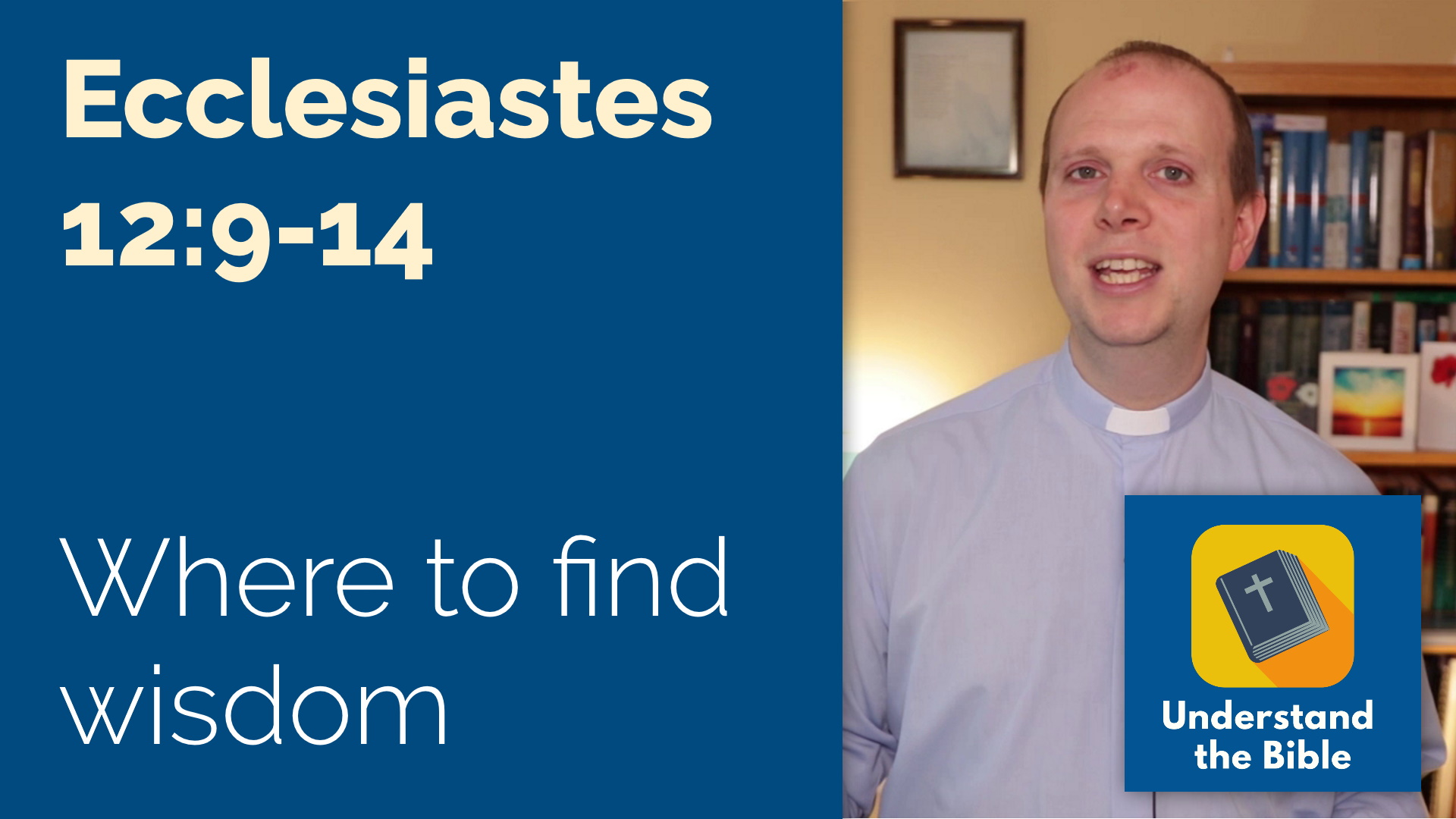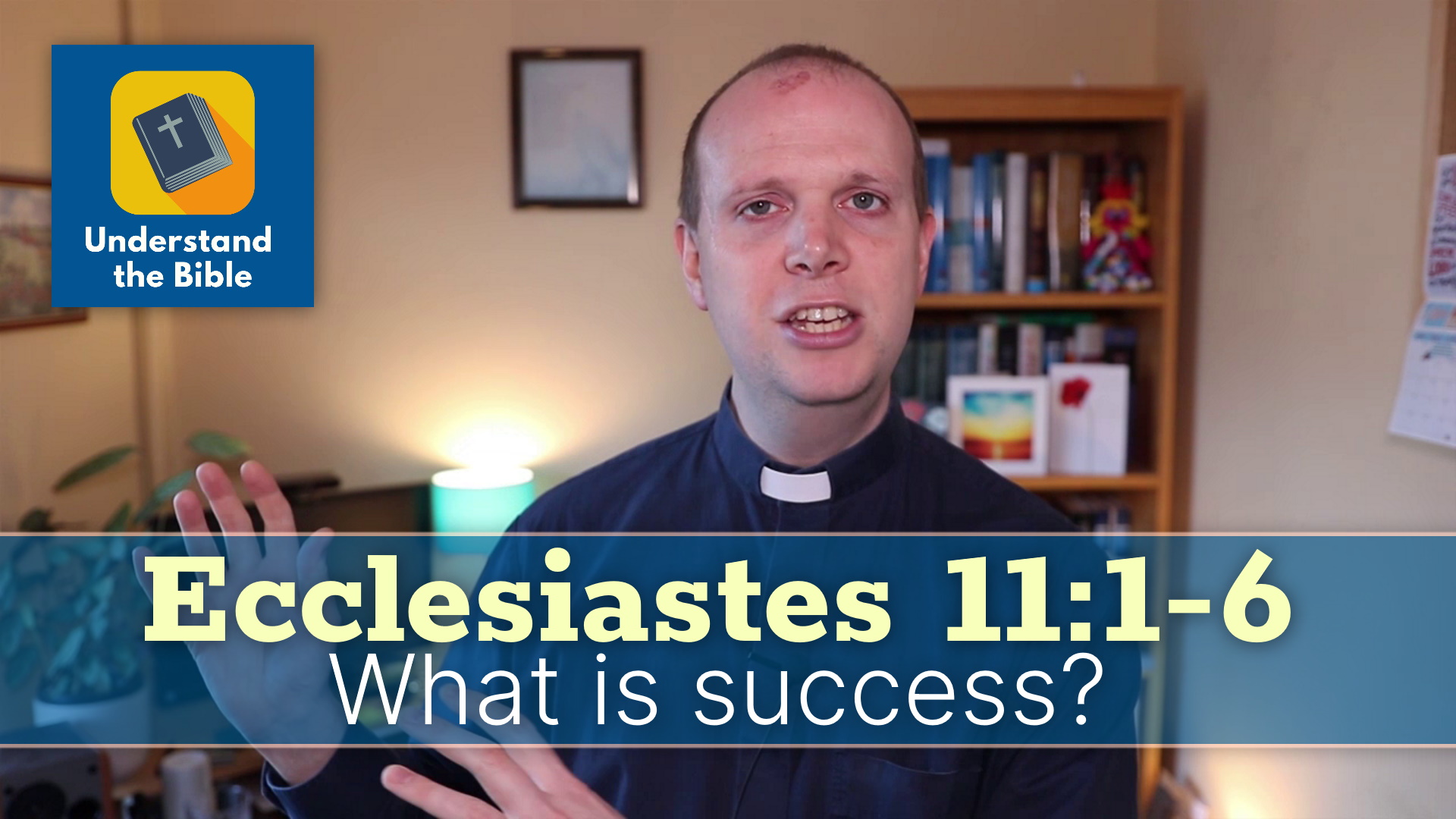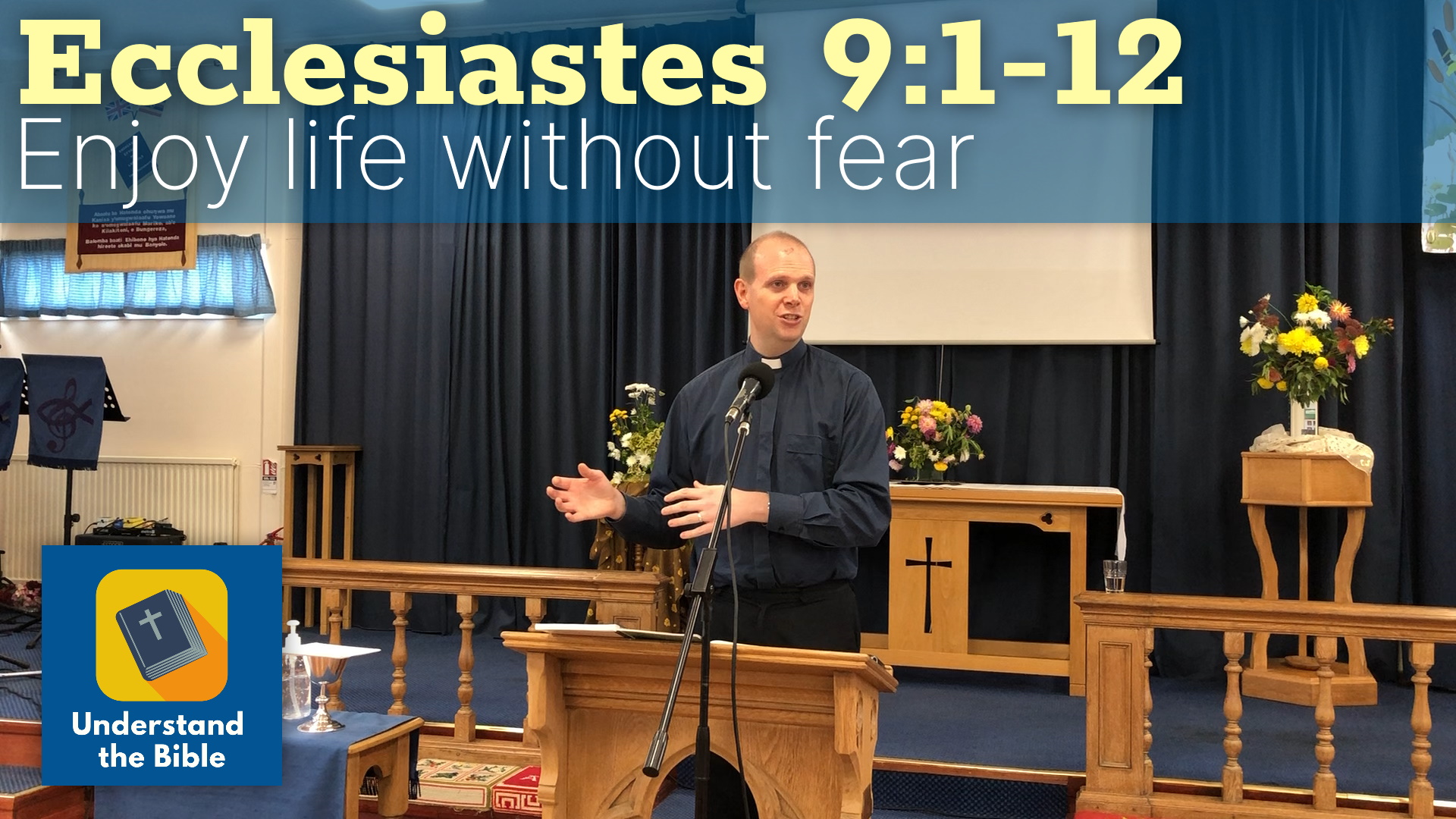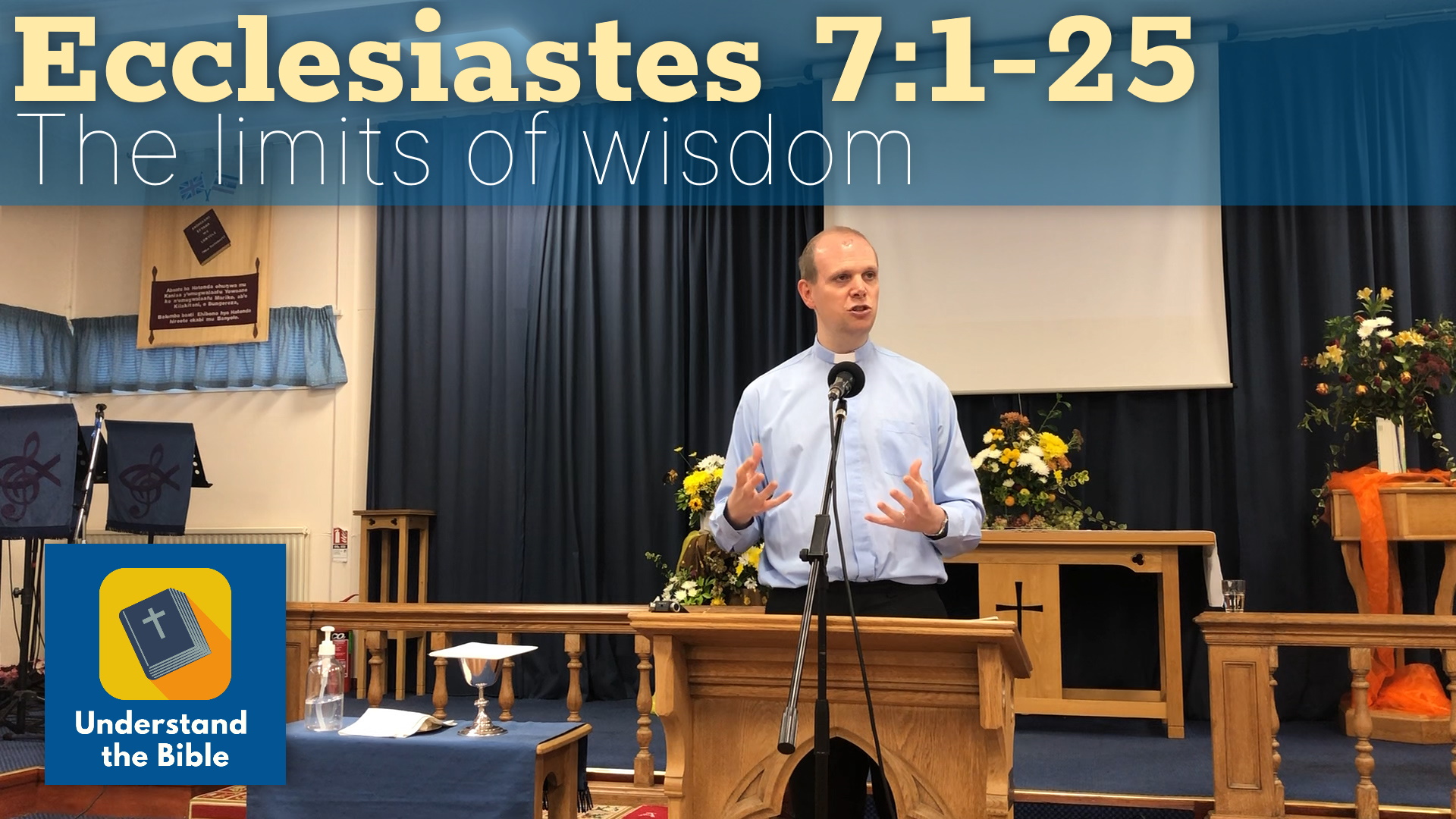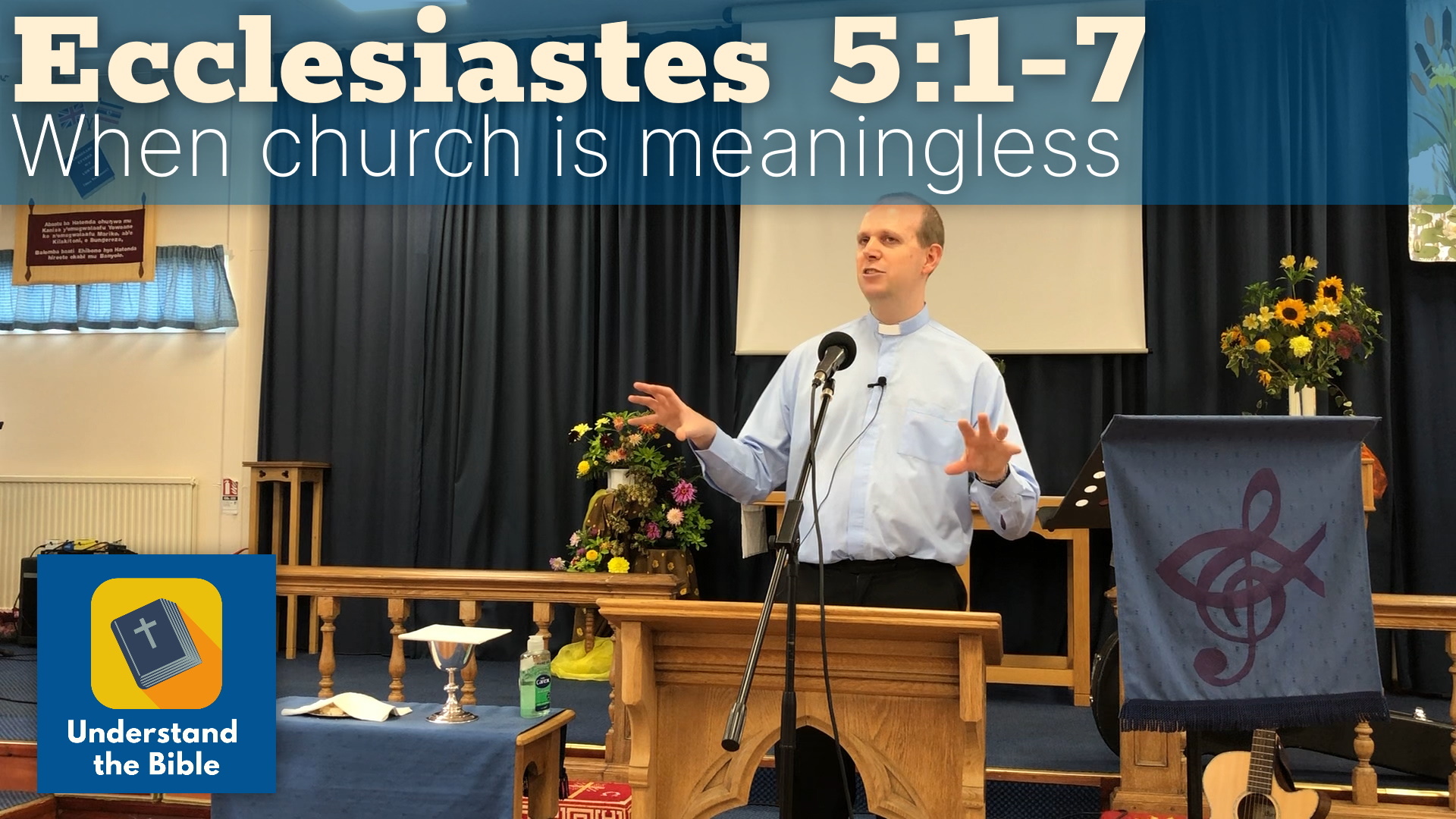A sermon on Ecclesiastes 12:9-14, part of a sermon series on Ecclesiastes preached at our church. As you can probably tell, this sermon was actually recorded at home due to the present lockdown restrictions in the UK! I apologise for the camera focus issues at the beginning. I hope it doesn’t distract too much.
In the final part of this series, The Teacher finishes off by giving us a summary of wisdom. Why should we listen to him, and what is wisdom in a nutshell?
You can see the previous sermon on Ecclesiastes 11:7-12:8 here. All content from Understand the Bible about Ecclesiastes can be found under the Ecclesiastes tag. All sermons can be found in the sermons category.

